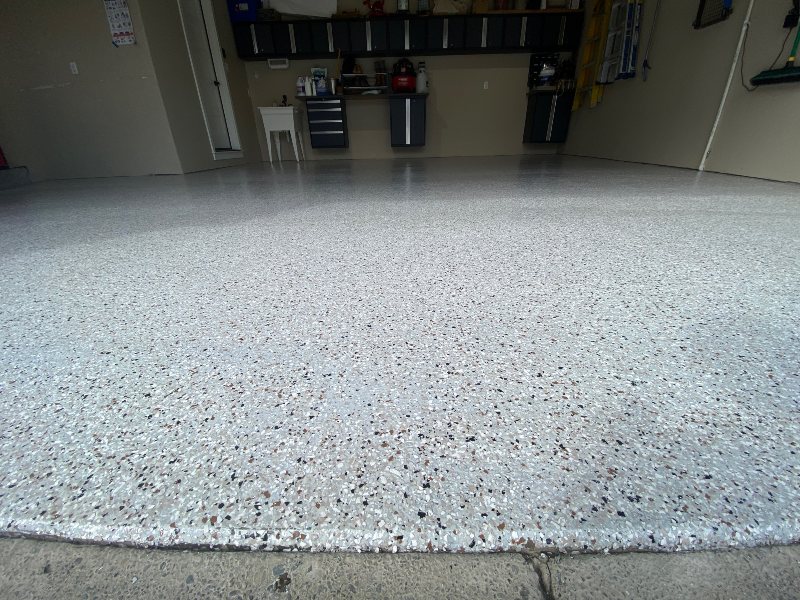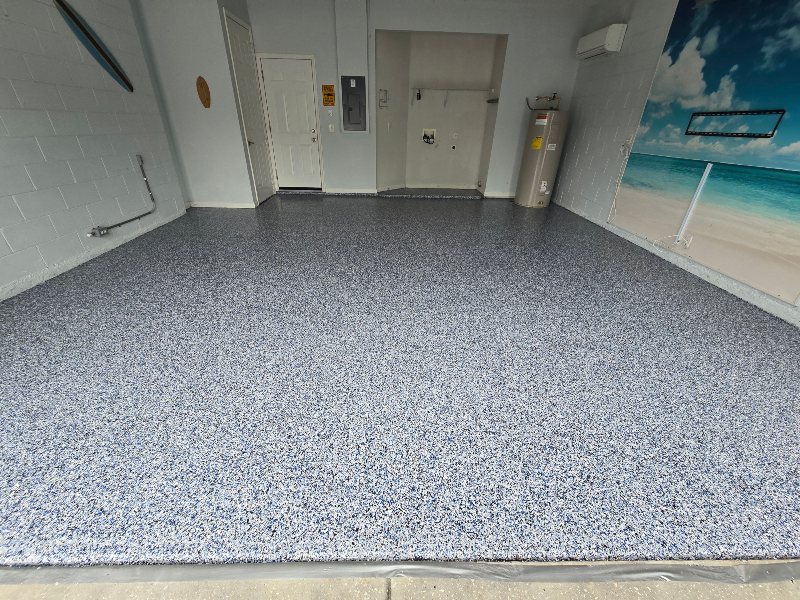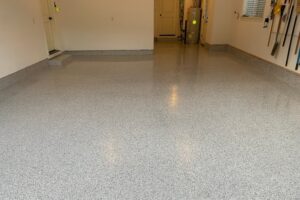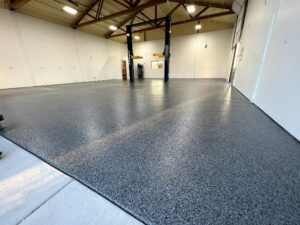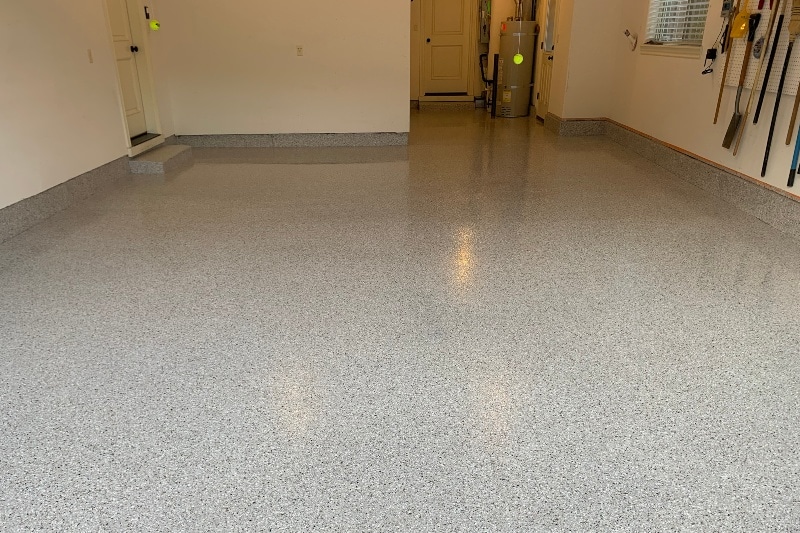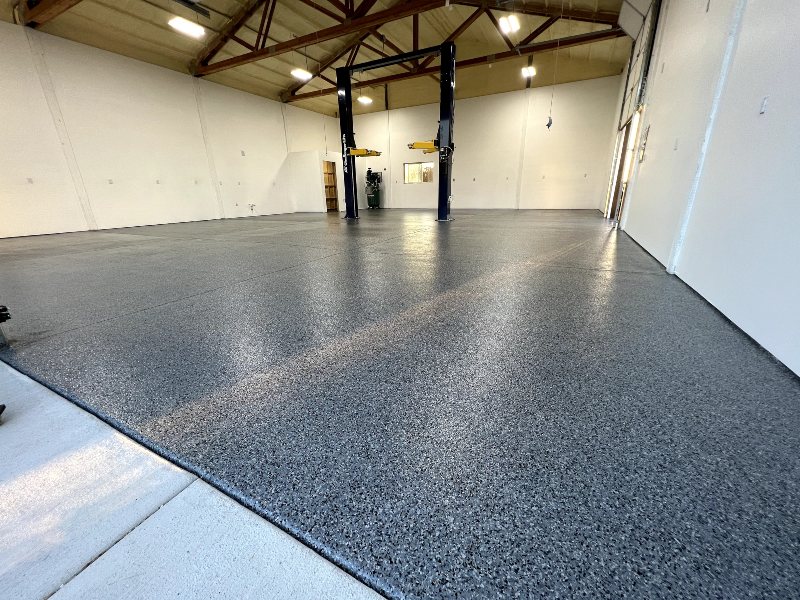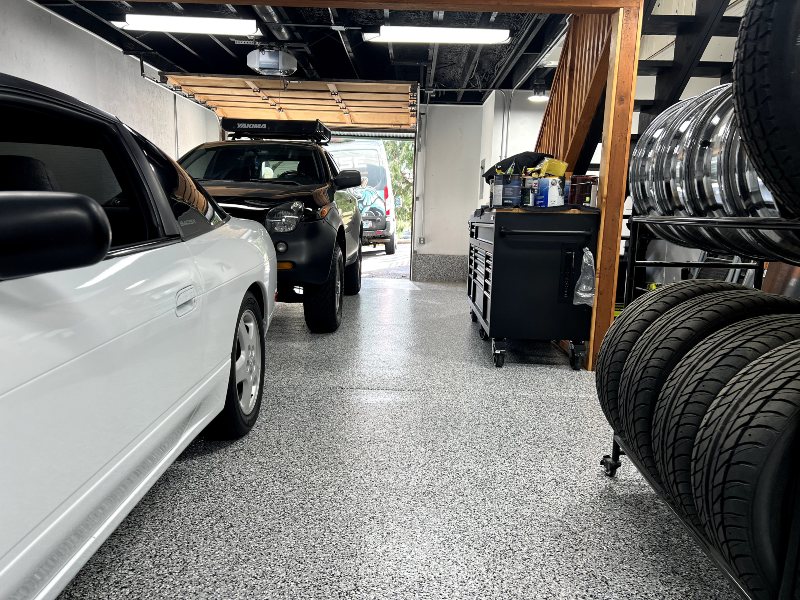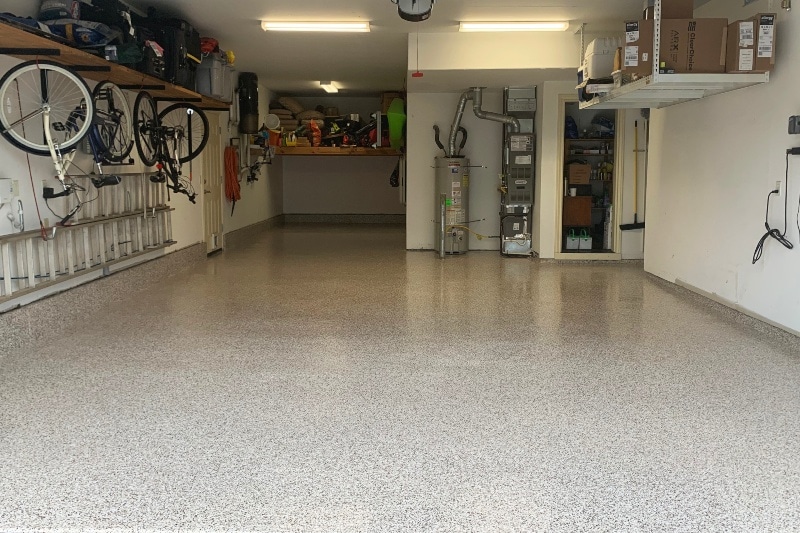The Ultimate Guide to Epoxy Garage Floor Cost: How to Get the Best Value for Your Money
Welcome to The Ultimate Guide to Epoxy Garage Floor Cost. Discover the best value for your money as we take you on a journey. Your garage floor is more than just a parking spot; it’s a crucial part of your home protecting your valuable assets. Upgrade the look and functionality of your garage floor with epoxy flooring. We’ll help you navigate the costs and provide you with the knowledge to make an informed decision. Learn about the factors that influence epoxy garage floor costs, the benefits of epoxy coatings, and how to get the best value for your money. Keep reading to find your perfect epoxy garage floor within your budget.
Understanding Epoxy Garage Floor Cost
When evaluating the cost of an epoxy garage floor, it is crucial to understand the factors that contribute to the overall price. The cost is influenced by aspects such as the size of your garage, the type of epoxy used, the complexity of designs, and the extent of surface preparation needed. The materials themselves can range from affordable DIY solutions to premium, professional-grade epoxies. Labor costs also play a significant role, as experienced contractors usually charge more, but bring a level of expertise that ensures a longer-lasting finish. By recognizing these variables, homeowners can better assess the price quotes they receive and make a choice that balances cost with quality.
Factors Affecting Epoxy Garage Floor Cost
- Surface Area of the Garage: The overall cost of an epoxy garage floor is greatly impacted by the size of the area to be covered. As the surface area increases, so does the amount of material needed, as well as the labor required for application. This is why homeowners will often find the cost quoted per square foot, allowing for straightforward calculations based on their garage’s dimensions.
- Types of Materials Used: Epoxy coatings come in a variety of types and qualities, ranging from water-based formulas suitable for DIY projects to solid-based epoxies ideal for commercial applications. High-end materials may include additional features such as UV-resistance and self-leveling properties, which contribute to a higher price point but offer a better finish and longer durability.
- Complexity of the Design: A simple, single-color epoxy floor is going to be more cost-effective than a floor with intricate patterns, multiple colors, or decorative chips. The more complex the design, the more time and material are required, increasing both the labor and material costs.
- Installation Methods: The method of installation can affect the cost significantly. For example, floors requiring extensive preparation, such as crack repairs or moisture mitigation, will increase the total cost. Additionally, professional epoxy installation by an experienced contractor, while more costly upfront, can potentially save money in the long run by avoiding the need for future repairs or early replacement.
- Additional Features and Services: In addition to the base layers, several additional features and services can enhance the performance and appearance of an epoxy garage floor, influencing the overall cost. These add-ons may include topcoats that improve resistance to abrasions and chemicals, anti-slip finishes for enhanced safety, and custom logo applications for a personalized touch. Services such as garage organization and storage solutions, when executed in conjunction with the epoxy installation, can also impact the budget but provide a comprehensive upgrade to the usability and aesthetics of the space. It is essential to consider these options for their long-term value and benefits to the garage’s functionality.
How to Get the Best Value for Your Money
To ensure you’re getting the best value for your money when investing in an epoxy garage floor, consider the following steps:
- Research and Compare Quotes: Take the time to research local contractors and obtain multiple quotes before making a decision. Each quote should itemize the costs of materials, labor, and any additional features. This not only gives you a clearer understanding of where your money goes but also allows you to effectively compare providers based on the value they offer.
- Check for Warranties and Guarantees: Warranties and guarantees are a sign of quality and the contractor’s confidence in their work. Opt for epoxy flooring specialists who provide solid warranties that cover both materials and labor. This can provide peace of mind and safeguard your investment against potential defects or problems down the line.
- Ask for References and Reviews from Previous Clients: Reputable contractors should be able to provide references or direct you to reviews from past clients. Reach out to these individuals and inquire about their experiences, the durability of the flooring, and any issues they encountered. Positive feedback from previous customers can be a strong indicator of the contractor’s ability to deliver value and satisfaction.
- Be Aware of Scams and Traps: It’s crucial to stay vigilant against potential scams and traps that prey on homeowners seeking epoxy flooring services. Watch out for deals that seem too good to be true, such as significantly lower prices than the market average. Be cautious of contractors who demand a large upfront payment or those who do not have a verifiable physical address or online presence. Always verify the legitimacy of their business license, insurance, and check their standing with consumer protection agencies. This due diligence will help ensure that you engage with reputable professionals and protect you from fraudulent activities.
Factors to Consider When Choosing a Contractor or a DIY Approach
When it comes to applying an epoxy finish to your garage floor, you have two main pathways to consider: hiring a professional contractor or taking on the project yourself. Each option has its advantages and challenges, and the right choice for you will depend on several factors.
Contractor vs. DIY
Choosing between a contractor and a DIY project primarily boils down to expertise, quality, time investment, and cost. A contractor brings specialized skills and knowledge, which can result in a high-quality, durable finish that lasts many years. On the other hand, a DIY epoxy coating approach may offer immediate cost savings and the satisfaction of completing the project on your own.
Factors to consider when choosing a contractor
When selecting a contractor, consider the following factors:
- Experience and Specialization: Look for contractors with significant experience and specialization in epoxy flooring, as this will likely reflect in the quality of their work.
- Licensing and Insurance: Verify that the contractor is licensed and insured to protect yourself from liability and ensure they adhere to industry standards.
- Portfolio and Past Work: Review the contractor’s portfolio and ask about past projects similar to yours to gauge their capability in handling your project.
- Pricing and Value: While cost should not be the sole determining factor, the contractor’s quote should align with the average market rate and reflect the value you receive.
- Client Testimonials: Solicit feedback from former clients to assess their satisfaction with the contractor’s services.
The pros and cons of a DIY approach
The DIY approach has its own set of pros and cons:
Pros:
- Cost Savings: Usually more cost-effective upfront as you save on labor costs.
- Full Control: You have complete control over the timeline and can adjust the project to your preferences.
- Learning Opportunity: You gain new skills and the knowledge to handle future flooring projects or repairs.
Cons:
- Time Commitment: DIY projects can be time-consuming, especially for those inexperienced with epoxy applications.
- Quality Risks: Without professional expertise, there’s a higher risk of mistakes that can compromise durability and appearance.
- Additional Costs: Mistakes can lead to additional costs for rework or materials, potentially negating the initial savings.
In conclusion, whether you opt for a professional contractor or a DIY approach to epoxy garage flooring, the goal is to enhance the value, safety, and longevity of your space. It’s imperative to perform due diligence in researching and comparing options, understanding the potential benefits and drawbacks of each path. By prioritizing factors such as expertise, quality, cost, and long-term investment, you’ll be well-placed to make an informed decision that aligns with your needs and budget.



